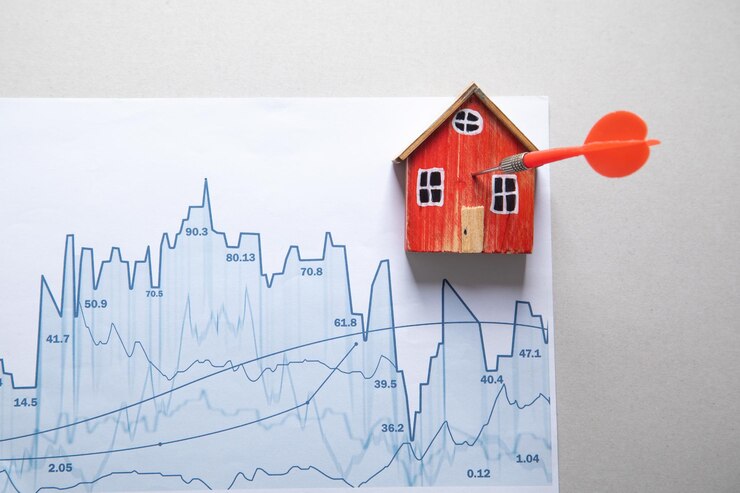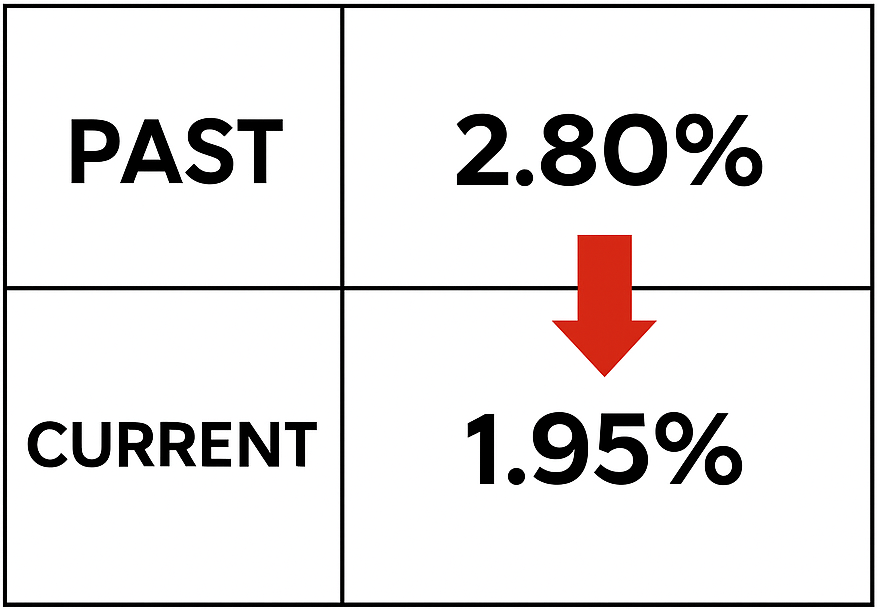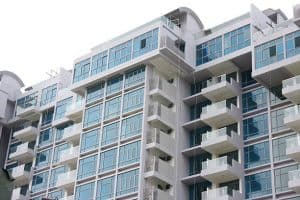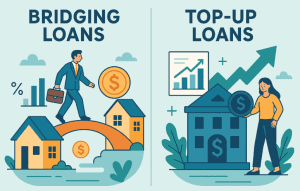If you’re planning to buy a property or refinance your existing loan, understanding the SORA rate in Singapore is crucial. As of June 2025, SORA—the Singapore Overnight Rate Average—has replaced traditional benchmarks like SIBOR and SOR, becoming the backbone of home loan rates in Singapore.
With so many options available, from fixed rate mortgage Singapore plans to floating SORA loans, it’s essential to grasp how SORA works, why it matters, and how it affects your housing loan interest rate. This guide dives into everything you need to know—backed by expert insights and the latest mortgage interest rates Singapore updates.
What Is SORA and Its Significance in 2025
If you’re navigating the complex world of mortgage interest rates in Singapore this year, it’s impossible to ignore SORA—the Singapore Overnight Rate Average. As the main benchmark for home loan rates in Singapore, SORA has taken the spotlight in the mortgage market, replacing older benchmarks like SIBOR and SOR.
Definition and Calculation of SORA
SORA stands for Singapore Overnight Rate Average. It reflects the volume-weighted average rate of unsecured overnight interbank SGD transactions. Essentially, it’s the transparent, reliable base for calculating mortgage loan interest rate Singapore in the current climate.
Think of SORA as the foundation for your loan—just like a solid home foundation is crucial, understanding your base rate can save you thousands in interest over time.
Transition from SIBOR and SOR to SORA
Previously, Singapore borrowers relied on SIBOR and SOR as benchmarks for housing loan rates. However, due to regulatory shifts and a push for greater transparency, both SIBOR and SOR have been phased out. As of 2025, SORA is the go-to benchmark for mortgage loan Singapore, offering more stability and predictability.
- SIBOR: Outdated and less transparent.
- SOR: Phased out due to derivative complexities.
- SORA: Clear, volume-weighted, and regulated by MAS.
For the best rates and reliable guidance, check out the latest insights on home loan rates in Singapore—your one-stop guide to Singapore mortgage interest rate comparisons.
Differences Between 1M and 3M Compounded SORA
When you’re looking at mortgage rates in Singapore, you’ll often see references to the 1-month (1M) and 3-month (3M) compounded SORA. Here’s how they differ:
Comparing 1M vs. 3M Compounded SORA
| SORA Term | Definition | Impact on Home Loans |
|---|---|---|
| 1M SORA | Average rate over the past month | More responsive to market changes, but can be volatile |
| 3M SORA | Average rate over the past three months | Smoother, less sensitive to short-term fluctuations |
Personal opinion? For most homeowners, the 3M compounded SORA might be more predictable and easier to budget around, especially if you prefer some stability in your home loan interest rate in Singapore.
Current SORA Rates and Trends (June 2025)
Staying updated on the SORA rate Singapore is key for homeowners, investors, and anyone looking at home loan rates. As of June 2025, the SORA benchmark continues to guide housing loan interest rate Singapore decisions, affecting both new loans and refinancing options.
Latest 1M, 3M, and 6M SORA Rates
Here’s a quick snapshot of the latest SORA rates as of June 2025:
Current SORA Rates Today (January 2026)
| Compounded SORA Tenor | Rate |
|---|---|
| 1-Month Compounded SORA | 1.14% |
| 3-Month Compounded SORA | 1.24% |
These rates influence how banks price mortgage interest rate Singapore packages. Remember, different banks like DBS, UOB, and OCBC may offer different spreads on top of the base SORA rate—so always compare before deciding.
Historical SORA Rate Movements
Looking back helps us understand where rates might be heading. Over the past two years, SORA rates saw a gradual increase, peaking at around 3.0% in 2024 before stabilizing.
- 2023: Peaked at 3.0%
- 2024: Gradual decline to ~2.5%
- 2025 (so far): Stabilized around 2.1-2.2%
If you’re considering refinancing, historical trends can guide your timing. You might lock in better rates when SORA is on a downward trend.
Check out refinance home loan Singapore to explore options if you’re thinking of refinancing.
SORA Rate Forecast for the Remainder of 2025
Analysts suggest SORA rates could remain stable or even slightly decrease towards the end of 2025, depending on global economic conditions. Factors like U.S. Federal Reserve policy and Singapore’s own monetary policy adjustments play key roles.
- Forecast range: 2.0% – 2.2%
- Potential for rate cuts if economic growth slows
- Stability if inflation remains under control
Personal opinion? Keeping an eye on market forecasts and talking to a trusted mortgage broker Singapore can help you make smarter choices.
Impact of SORA on Home Loans in Singapore
Understanding how SORA rates affect your home loan rates in Singapore can help you make smarter decisions. As the main benchmark for floating-rate mortgages in 2025, SORA shapes your monthly repayments, total interest paid, and even refinancing opportunities.
How SORA Influences Floating-Rate Mortgages
A SORA-pegged mortgage means your interest rate is made up of the current SORA plus a bank spread. When the SORA rate Singapore moves, so does your monthly repayment.
- SORA rate + Bank spread = Your mortgage rate
- Transparent and volume-weighted average
- Tends to be more predictable than older benchmarks like SIBOR
Always check how often your bank reviews the SORA rate. Some adjust monthly, while others do quarterly, affecting how quickly your loan reflects market changes.
Comparing SORA-Pegged Loans to Fixed-Rate Mortgages
Choosing between SORA-based loans and fixed rate mortgage Singapore options is a common dilemma. Here’s a quick comparison:
SORA-Pegged vs. Fixed-Rate Mortgages
| Feature | SORA-Pegged Loan | Fixed-Rate Mortgage |
|---|---|---|
| Interest Rate | Fluctuates with SORA | Stays the same during lock-in |
| Monthly Payment | Can vary; may decrease over time | Predictable payments |
| Flexibility | Usually no lock-in or shorter lock-in | Longer lock-in periods |
| Suitability | Ideal for those with higher risk tolerance | Better for those seeking stability |
Personal opinion? For long-term homeowners who want predictable payments, a fixed-rate mortgage might be a better fit. But if you’re open to some rate fluctuations, SORA-pegged loans could offer savings—especially in a stable or declining rate environment.
For the latest fixed rate mortgage Singapore packages, explore Ace Mortgage’s home loan options to compare offers from top banks like DBS, UOB, and OCBC.
Strategic Considerations for Choosing Between SORA and Fixed Rates
Before deciding, think about:
- Your risk tolerance – Can you handle fluctuating monthly payments?
- Loan tenure – Shorter tenures may benefit more from SORA, while longer ones could justify a fixed rate.
- Market forecasts – Keep an eye on mortgage interest rate Singapore predictions.
Expert Tip: Speak to a mortgage broker Singapore to get a tailored analysis of how each option fits your unique financial situation.
Check out Singapore mortgage brokers for guidance on choosing the best plan for your needs.
Refinancing Options Amid Changing SORA Rates
With SORA rates still fluctuating, many homeowners are exploring their refinancing options. Whether you’re looking to reduce monthly payments or lock in a better deal, knowing when—and how—to refinance is key to making the most of the home loan rates Singapore market.
When to Consider Refinancing Your Home Loan
Timing is everything when it comes to refinancing. Generally, you should consider refinancing your mortgage loan Singapore if:
- Your current rate is significantly higher than the prevailing SORA rate Singapore.
- Your lock-in period has ended (or the penalty for breaking it is small).
- You’re looking to switch from a fixed rate to a SORA-pegged loan for better transparency.
Review your loan documents to check for lock-in clauses or early repayment fees. Even a 0.25% rate difference could translate into thousands of dollars saved over the loan term.
Need help crunching the numbers? Try our mortgage loan repayment calculator for a quick estimate.
Benefits of Switching to a SORA-Pegged Loan
Many homeowners are drawn to SORA-based loans for a few reasons:
- Transparent pricing – SORA is a volume-weighted, market-driven rate.
- Potential savings – If rates drop, your monthly payments might too.
- Flexible terms – Often fewer lock-ins or shorter lock-in periods.
Personal opinion? If you’re planning to sell or refinance in a few years, a SORA-based mortgage might offer more flexibility than a fixed-rate package.
For more insights, check out refinance home loan Singapore to compare rates across different banks.
Potential Drawbacks and Considerations
Refinancing isn’t always the right move. Here’s what to watch out for:
- Rate volatility – SORA can rise, increasing your monthly payments.
- Administrative fees – Legal fees, valuation, and other costs add up.
- Timing – Refinancing during a high SORA cycle might not save you much.
Speak to a mortgage broker Singapore to evaluate whether refinancing makes sense now or if waiting could yield better rates.
For personalized advice, visit Ace Mortgage’s Singapore mortgage broker page for a full guide to your options.
Global Economic Factors Affecting SORA
The SORA rate Singapore doesn’t exist in a vacuum—it’s shaped by a range of global and local factors. Understanding these can help you plan for shifts in mortgage rates Singapore and make more informed decisions about your home loan Singapore.
Influence of U.S. Federal Reserve Policies
When the U.S. Federal Reserve changes its interest rates, it indirectly impacts SORA. A Fed rate hike usually pushes global interest rates higher, which can trickle down to mortgage loan interest rates Singapore.
- Fed hikes often raise borrowing costs worldwide.
- A higher SORA means higher monthly payments on floating-rate loans.
Expert Tip: Keep an eye on Fed policy statements—they often give clues about future interest rate movements.
Effects of Global Trade Policies and Tariffs
Trade wars, supply chain disruptions, and tariffs can all influence Singapore’s economic outlook—and SORA. When trade tensions rise, market volatility can push interest rates in either direction.
- For example, global supply chain issues in 2024 contributed to higher borrowing costs.
- Trade tensions can cause short-term spikes in SORA.
Personal opinion? Diversify your investments and keep an emergency fund to weather any SORA fluctuations.
Singapore’s Monetary Policy Adjustments
The Monetary Authority of Singapore (MAS) uses policy tools like the S$NEER (Singapore Dollar Nominal Effective Exchange Rate) band to manage inflation and economic growth. These adjustments can affect SORA rates and, by extension, your housing loan interest rate Singapore.
- MAS policy shifts can indirectly influence SORA trends.
- Expect SORA to remain stable if Singapore’s economy grows steadily.
For more on Singapore’s monetary policy and its effect on mortgage loan Singapore, check out reliable sources like MAS’s Monetary Policy page.
Tools and Resources for Managing SORA-Based Loans
Managing your SORA-based home loan Singapore doesn’t have to be overwhelming. With the right tools and resources, you can stay on top of interest rate changes and make informed decisions to optimize your housing loan interest rate in Singapore.
Utilizing Mortgage Calculators for SORA Loans
A mortgage loan repayment calculator Singapore is a great way to estimate your monthly payments based on the latest SORA rates Singapore. These calculators let you:
- Input different loan amounts, tenures, and spreads.
- See how changes in SORA can impact your monthly payments.
- Compare different loan packages easily.
Expert Tip: Try our mortgage loan repayment calculator to see how your repayments might change if SORA rises or falls.
Importance of Monitoring SORA Rate Changes
SORA rates fluctuate based on market conditions. Staying informed helps you spot opportunities to refinance or adjust your loan strategy.
- Check SORA daily on authoritative websites like ABS Benchmarks.
- Watch for announcements from MAS or the U.S. Federal Reserve.
- Review your bank’s rate adjustments regularly.
Personal opinion? Setting up rate alerts or subscribing to financial newsletters can keep you ahead of any significant SORA movements.
Consulting Mortgage Advisors for Personalized Advice
Navigating SORA-based loans can be tricky, especially when it comes to refinancing, repricing, or choosing between fixed and floating rates. A mortgage broker Singapore can help you:
- Compare home loan rates Singapore from multiple banks.
- Evaluate the pros and cons of SORA-pegged vs. fixed-rate loans.
- Tailor your loan package to your financial goals.
For expert help, visit Ace Mortgage’s Singapore mortgage broker page to connect with experienced advisors who can guide you every step of the way.
Frequently Asked Questions About SORA Rates in Singapore
How often does the SORA rate change?
The SORA rate Singapore is published daily by the Monetary Authority of Singapore (MAS). This means your mortgage payments can potentially change monthly, depending on how your bank structures its floating-rate packages.
Is SORA better than SIBOR or SOR for home loans?
Yes. SORA is more transparent and reflects actual interbank transactions, making it a more reliable benchmark for home loan interest rates in Singapore. Unlike SIBOR and SOR, SORA avoids derivatives and is considered fairer for consumers.
Can I refinance from a SIBOR- or SOR-based loan to a SORA-pegged loan?
Absolutely. Many banks in Singapore now offer refinancing options that let you switch from legacy benchmarks like SIBOR or SOR to SORA-based mortgages. Check out refinance home loan Singapore for tailored options.
Should I choose a 1M, 3M, or 6M SORA loan?
It depends on your risk tolerance. A 1M SORA loan can react faster to market changes, while 3M SORA offers a smoother ride. 6M SORA is less common but might provide even more stability.
How do global events impact SORA rates?
Global economic trends, such as U.S. Federal Reserve policies and trade policies, can indirectly influence SORA rates by affecting Singapore’s broader monetary policy. Stay informed to make timely decisions on your mortgage.
Final Thoughts: Making the Most of SORA Rates in Singapore
Navigating the SORA rate Singapore landscape doesn’t have to be overwhelming. With the right knowledge, tools, and guidance, you can secure a mortgage loan Singapore that fits your needs—whether you’re a first-time buyer, a seasoned investor, or simply looking to refinance.
Remember, understanding SORA rates Singapore and how they influence your home loan interest rate Singapore can save you thousands over the life of your loan. Don’t leave your financial future to chance—consult with a mortgage broker Singapore to get the best advice and access the latest deals.
Ready to make your move? Check out Ace Mortgage’s comprehensive range of home loan services today. Let’s help you find the perfect home loan in Singapore—whether it’s a SORA-based loan or the best fixed rate mortgage Singapore deal!














